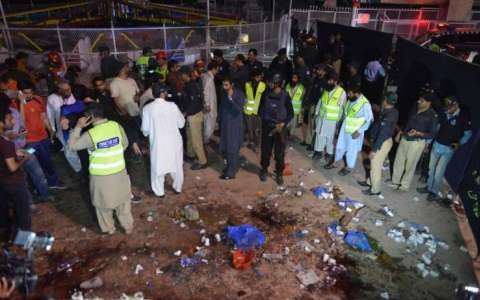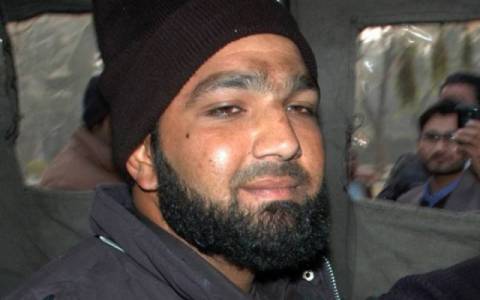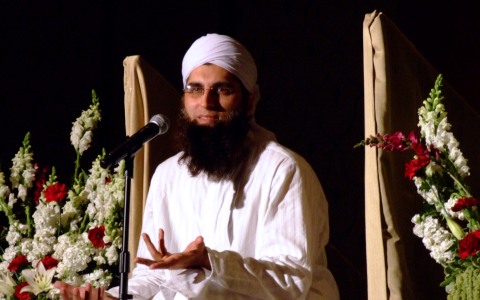ANALYSIS The battle for Pakistan
by - 28th March 2016

LATE on Saturday night popular Pakistani singer Junaid Jamshed was assaulted shortly after arriving at Islamabad airport. Jamshed, who later became a charismatic Sunni evangelist, had previously been charged with blasphemy after making irreverent remarks about one of the wives of the Prophet Muhammad. A video of his rough treatment is doing the rounds on social media.
On Sunday morning Islamabad was locked down. Squads of riot police and soldiers were ordered in, and shipping containers were dragged across major roads – the standard prophylactic against the episodes of civil unrest which plague the Pakistani capital.
A crowd of some 25,000 protesters had gathered in Rawalpindi, Islamabad’s twin city, and after prayers, started marching towards the capital. As night fell they arrived in front of the National Assembly building and fighting broke out. Tear gas was fired, and the rioters smashed Islamabad’s new metro bus stations, assembled at great expense only a year earlier.
Meanwhile, in Lahore, an unidentified driver drew up next to a funfair filled with people enjoying a day off, and parked. Many of them were Christians celebrating Easter Sunday. A bomb in the car went off a short distance away from Gulshan-i-Iqbal Park where children were playing on the swings. The death toll currently stands at 71, but that will surely rise as Lahore’s creaking healthcare system struggles to cope.
This weekend’s madness needs to be seen against the backdrop of the ongoing struggle against extremism in Pakistan.
The December 2014 terrorist attack on a school in Peshawar which killed 140 people, mostly schoolchildren, forced the Pakistani authorities to recognise, belatedly, that their policy of nurturing terrorist groups as geopolitical tools was backfiring. The same groups who were intended to prolong the fight for Kashmir were now machine-gunning schoolboys in the head; something had to change. Since then the government and army have launched a major offensive in Waziristan and have clamped down on domestic extremists.
The Prime Minister, Nawaz Sharif, has gone further: he recently attended a Diwali event alongside Hindus in Karachi, and used his speech to praise the role of minorities in Pakistan. The Punjab Assembly passed a bill outlawing domestic violence against women and creating – for the first time in Pakistan – an offence of marital rape.

Then came the acid test for Pakistan’s new-found anti-extremist zeal: the case of Mumtaz Qadri, the bodyguard who in 2011 assassinated Salman Taseer, governor of the Punjab and a leading campaigner for reform for Pakistan’s blasphemy law. Early on 29 February he was taken from his cell and hanged. Tens of thousands attended his funeral and isolated protests broke out, though the media was so effectively muzzled that almost nobody heard about it.
The protesters who marched on Parliament last night (Sunday) – members of the hardline Barelvi sect, like Qadri himself – were chanting his name. Their leader demanded, among other things, that the government declare Qadri a martyr, execute Christians who are in jail on blasphemy charges, and deport every member of Pakistan’s beleaguered Ahmaddiya minority. As we drove home from Easter Sunday celebrations we could hear the chanting: thousands of people in the heart of Pakistan’s capital city demanding that the government institute a policy of ethnic cleansing.

Pakistan is widely perceived in the West as being a den of fanaticism, yet this is a rank oversimplification. The overwhelming majority of Pakistanis are fundamentally decent, hospitable, and kind. Myopic Western narratives obscure any number of inconvenient facts: that far more Muslims are killed by terrorists than Christians; that the blasphemy laws are more often used as an excuse to seize valuable land than to score religious points; that there is a growing sense of outrage among Pakistanis at the brutalities committed in their country.
When terrorists attacked a church in Peshawar in 2013 a Muslim aid agency sent ambulances to help them, saving many lives. Even now SMS appeals for blood donations are doing the rounds; a taxi company in Lahore is offering free travel to hospitals for anyone who wants to donate blood. A friend of mine came across two men looting a bus station in Islamabad, chased them off, retrieved their loot, and promptly returned it to the authorities.
And yet the fact remains that there are organisations in Pakistan who consider it meritorious to park a car bomb next to a playground and blast dozens of giggling children to smithereens; who acclaim as a hero a man who machine-gunned a civil rights campaigner to death in an upmarket shopping area. The broad swathe of Pakistani decency and kindness is hedged in by a lunatic fringe of murderous zealots.
It is not easy to step back from three decades of officially-sanctioned Islamism; the retrogressive reforms of General Zia, who strengthened the blasphemy law and degraded the rights of Pakistani women, cannot be undone without a fight. Yet while there are Muslims who pray for the rights of Pakistani minorities; while there are Muslims who text me condolences on the Christian lives lost in Lahore; while there are Muslims who risk their lives to demand government action against radical clerics who openly declare their support for Islamic State –while such people exist, there is hope for Pakistan.
The writer who is British and works for an international NGO wishes to remain anonymous.
